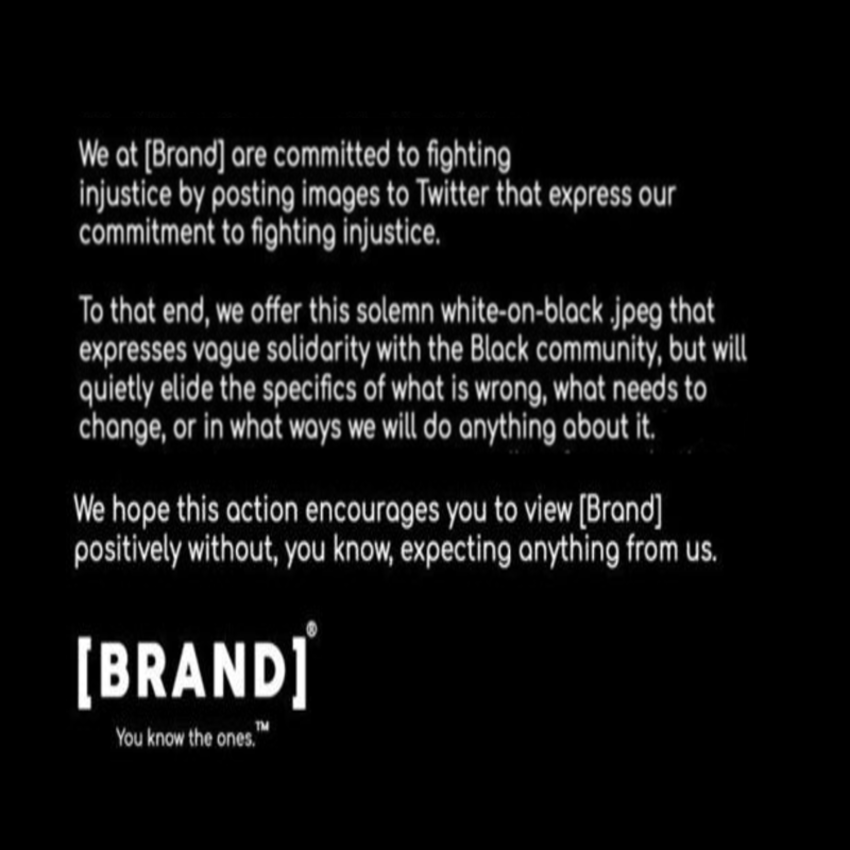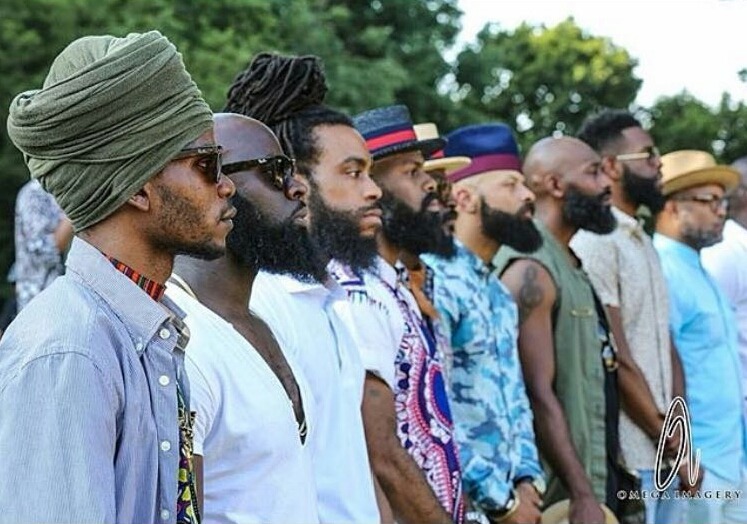One of the many lessons we can take from the perspective-shifting pandemic period, is how we reckon with the responses of the white establishment power brokers that still greet each regular-as-clockwork disclosure of new depths trawled in the latest racism ‘scandal’ with the ‘express shock – avoid blame – fake apologise – forget – repeat’ shuffle. By now, the steps are more familiar than those of a synchronised Tik Tok routine accompanied by a reggaeton-lite soundtrack from the summer of 2020. They have become predictably inadequate responses to the trauma and violence of racism. Like the home dancing fads, these cliched responses will be regarded in future with similar levels of bemusement, turning to revulsion because of unimaginative repetition.
Up there with the irony-defining fossil fuel emissions from movie stars’ private jets, unconvincingly offset on the way back from pointless photo opps at Glasgow’s COP26 climate justice conference, the future will surely question why we accepted the denialism, distraction tactics, divide and rule playbook so readily. Why, they will ask, in spite of claims to be the most educated population of all time, with billionaires scrambling over each other to pleasure trip in outer space, no sustainable alternative to the gaslighting of Britain’s Black population has been found.

The pledges that filled our social media timelines back in the summer of 2020 were evidence of a public desire by individuals and the institutions they have created to be seen as part of the solution. While a long way from our desire for organisations to worry less about the optics than the outcomes of their actions on our lives, this represents progress; it was not so long ago that many similar institutions were busily denying that there was any problem to solve beyond the chips on Black and Brown shoulders.
Lockdown provided many opportunities for soul searching. However, it also exposed our scripted reality fuelled propensity to settle for image over substance. Like a teenager desperate for acceptance, presenting an airbrushed Insta-life worthy of Queen GC herself, businesses, charities, and politicians, joined movie stars, and sportspeople in expressing their horror at the persistence of racism and pledged to ‘do better’. Just like the keen-to-impress teenager, many made the error of paying far more attention to how peers would perceive them than addressing the substance of the behaviour change it would take to live up to their newfound anti-racist aspiration. Unlike the adolescent engaging in formative identity play, the litany of black box pledges was less forgivable coming from folk selling what they would never buy; the unbelievable in pursuit of the unmeasurable.

Many Black people looked askance at late-in-the-day conversions to anti-racism, given a generational lack of change in their life chances. Social immobility at work a life threatening factor for those unable to shelter at home. Some may have reflected on 40 years since an earlier Royal Wedding (now dissolved) was neither bread nor circus enough to quell the 1981 Brixton, Handsworth, Toxteth, Moss Side, St Paul’s uprisings, that were provoked by abuse of the sus laws. Black youth connected across generation with their forebears when stepping out from their overcrowded, disproportionately COVID affected homes for fresher air in London, they fell victim to the Met police reverting to stop-and-search type.
There were likely to have been thousands of eyes rolled, like mine, at the myriad assertions of moral virtue and finger pointing that ensued, like a Spiderman meme, as those only a couple of pages ahead in the anti-racist textbook preened and posed.

Yet, in the spirit of the moment, when so much else that was once deemed settled felt up for revision, most were willing to take people at their word, believing that finally the message had got through. The public lexicon shifted; ‘intersectionality’, ‘decolonisation’, and ‘wokeness‘, tripped off tongues and across social media feeds along with promising signs of monies diverted to Black-led causes, new forms of youth-led anti-racist organising, and the adoption of positive action schemes to diversify workforces.
Few, if any, expected change to be easy. Even fewer expected the new consensus to break down so spectacularly or so quickly – the term ‘woke‘ becoming a term of abuse, and government ministers reviving the spectre of dont-say-gay Section 28 style censorship, to shut down discussion of critical race theory, criticism of empire, or responsibility for in schools.
Apparently threatened by an upsurge in vocal protest against injustice well beyond the inner-city limits, worried by the levels of scrutiny that would emerge as a result of youth engagement with public policy, or simply imagining that an anti-racist society would lead to anarchy rather than democracy, the backlash was swift and concerted. The ineptitude of the Sewell Commission, where a worrying habit of Johnson government cronyism met the positive action scheme too far, failing at the only necessary Commissioner’s qualification – an inquiring mind rather than an axe to grind. Denialism in the US culminated in a botched attempt at stealing an election by those who believed that they are entitled to rule in perpetuity. In Brexit Britain, useful idiots in the guise of the PM’s Commission on Racial Equality and Disparities, tried to convince us that what looked, walked, and quacked like a duck, was in fact a flamingo – frittering away the hard-earned credibility of ‘One Nation’ Toryism, as well as any opportunity to tackle racial disparities during this parliament, in exchange for a venal and fruitless point-scoring exercise.
Thankfully, some kept their heads in this maelstrom, and undertook the less glamorous, painstaking work that has been the trademark of movements for racial justice in the UK – often under-resourced, usually unpopular, and rarely lauded – movement building for change continued. They continued to ask the difficult questions about accountability and to interrogate what progress might look like, even as Yorkshire Cricket, English football, a royal Duke and Duchess, and Little Mix became terrain for discussion about racism, and the supposedly settled issue of racism became unsettled once more.
They understood that change requires solidarity, embracing the reformers as well as the revolutionaries, even if posterity only records the actions of remarkable rebels or reduces the complexity of engagement on multiple fronts and learning through trial and error, to a single story peopled by strategic, prescient, and heroic interventions. While some elements of the movement for racial justice toured the TV studios and sought the soundbites to ‘win’ the media battles generated by ratings-chasing shock jocks, others focused on relationship building at local and institutional levels. Some parts of the movement were able to capitalise on the zeitgeist to build greater resilience for their organising, others to extend their work by cementing relationships that they had been building over time. A recent analysis of ‘what works’ in creating change highlighted the importance of cultivating a change ecosystem rather than hoping in vain for a new presentation of evidence to finally win over those in power to the cause. Even more recently, a review of the use of law to pursue racial justice was forced to conclude that the government had managed to effectively reduce the will of the Mother of all Parliaments on racial justice to a paper tiger through depriving funding from those in need of access to legal justice.
A litany of woe is not my style.
‘if you’ve nothing nice to say…‘ is a mantra that has left me dangerously close to silent over recent years as meaningful progress on racial inequity stalls and we’re offered ‘Black in One Day‘ or whatever Channel 4’s hollow TV stunt was called, in exchange. However, last summer, BLKOUT was pleased to be able to offer its support to an initiative from Synergi Collaborative Centre that may well draw few headlines, particularly in the midst of the Windrush scandal, Sickle Cell neglect, racist police thuggery, Grenfell obfuscation, or the continued death threat siege that we’ve accepted as normal for our Black and Asian parliamentarians. This does not mean that it is unimportant.
Mental health is an area of persistent and stubborn racial inequality. Our research conducted in 2019 reported that Black queer men in London, even before the pandemic, reported poorer levels of mental health while being more likely to be exposed to a combination of mental ill health risk factors. Last week, UK Black Pride reported the results of a more recent survey that demonstrated elevated levels of dissatisfaction with existing mental health services as well as shocking amounts of unmet need among QTIPOC populations. While mental health has been discussed much more over recent years, it remains neglected in favour of action on physical health conditions that can appear more straightforward to address, legislation stalled for nearly a decade. The possibility of making progress during a period when the resources of the NHS are understandably being driven by the COVID-19 pandemic, for Black queer men, a group that remains ill-defined in a quantitative data-hungry NHS, may have seemed distant.

Together, voices from inside the NHS, and from a newly inspired movement of individuals with lived experience, community focused organisations, justice-oriented academics, and creative practitioners, are developing new forms of creative and collaborative leadership, seeking change that moves systems and delivers improved outcomes.
Over the next few months these voices will share platforms, hold the difficult conversations, and shape demands for collaborative, embedded and lasting solutions to racial inequalities in mental health. I am proud to have my voice included among them, raising the concerns that Black queer men have shared with me, and plotting out the steps between where we are now and our aspirations for an anti-racist health system that promotes justice for all.
Not because it looks good, but because Black lives matter is a truth that demands action, even if it the glaringly obvious makes some people uncomfortable.
At COP26 there was much discussion of the short-term sacrifices required for global gain. If we fail to wean ourselves off our profligate ways, fail to shift taken-for-granted paradigms, we will find our resources depleted and our humanity at risk. Progress is possible, and innovators are showing the way – it’s beyond time to end the gaslighting.
From Pledge to Action digital series trailer from Synergi Collaborative Centre on Vimeo.



Leave a Reply